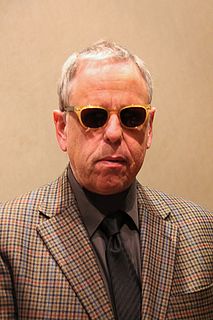A Quote by Colum McCann
I think literature can make familiar the unfamiliar, and the unfamiliar is very much about the dispossessed, and so the value of literature seems to me to go into the stories that not everybody wants to tell.
Related Quotes
It seems to me that literature is giving way a little bit to the immediacy of other diversions, other forms of entertainment. What will it be in fifty years? I don't know. Will there be printed books? Probably, but I'm not sure. There's always going to be literature, though. I believe that. I think literature has a way of getting deep into people and being essential. Literature has its own powers.
As for literature – to introduce children to literature is to install them in a very rich and glorious kingdom, to bring a continual holiday to their doors, to lay before them a feast exquisitely served. But they must learn to know literature by being familiar with it from the very first. A child's intercourse must always be with good books, the best that we can find.
Life itself today has lost its plane reality: it is projected, not along the old fixed points, but along the dynamic coordinates of Einstein, of revolution. In this new projection, the best-known formulas and objects become displaced, fantastic, familiar-unfamiliar. This is why it is so logical for literature today to be drawn to the fantastic plot, or to an amalgam of reality and fantasy.
I moved here when I was 20 to go to college. After I moved here, I became much more aware of the importance of the culture and literature to my life. Sometimes when you're immersed in something, you just don't notice it very much. Moving away makes you appreciate your culture. Living here, I've thought more and more about India, and what being Indian-American means to me. And it's made me incorporate things from Indian literature into my own writing.
I don't fear death. I'm not obsessed with it the way everybody else seems to be. It's wrong to say "everybody," but in literature I see it all the time - preoccupation with it, philosophical preoccupation, in fact. That's a principle element of literature and philosophy, often cited as the main element, the only real element. I say give it up.





































